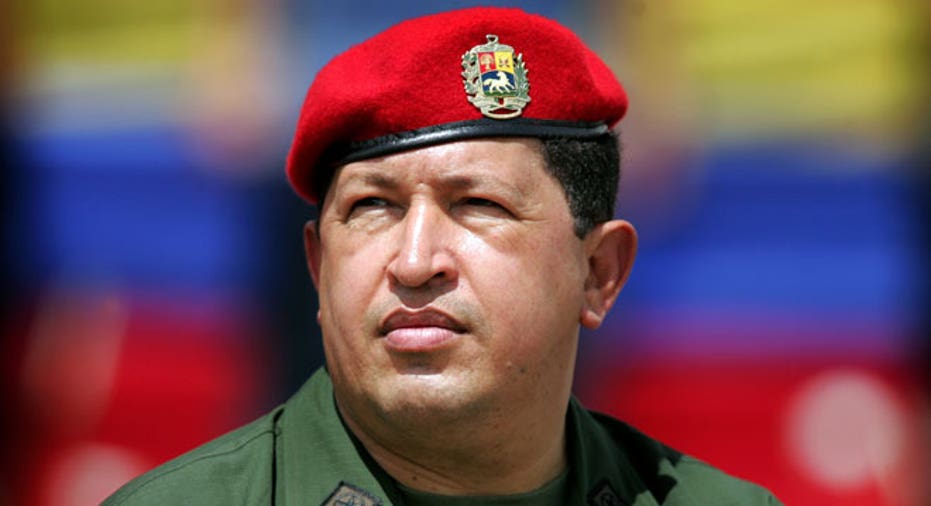What Chavez’s Death Means for U.S. Gas Prices

In the wake of Venezuelan President Hugo Chavez’s death Tuesday, the focus has shifted to American relations with the nation and the oil reserves Venezuela holds.
The country has 18% of the world’s proven oil share, which is the largest of any country, according to Dow Jones. The country’s annual output has declined by more than 20% from 1998 and is now at 2.5 million barrels daily. Chavez, who died after a two-year battle with cancer, relied heavily on imports.
If his successor reverses that pattern and begins investing in the nation’s reserves, gas prices could fall in the long run, according to GasBuddy.com’s Patrick DeHaan.
“This could spell a turn in the tide here,” DeHaan says. “Perhaps Venezuela will start investing in its oil industry, and help to stave off a reduction in production out there. Their crude output is significantly down.”
However, due to Chavez’s unpredictable reign, it’s unclear if foreign oil investors will jump at the chance to put money into the country.
An election is set for 30 days from now, and Chavez’s Deputy President Nicholas Maduro is his likely successor.
“He had someone waiting in the wings, so I’d expect very little change, or perhaps a good change,” DeHaan says.
Unless things take a turn for the worse, he says. For example, if Venezuela were to have an uprising in the wake of Chavez’s death, similar to what happened in Libya, oil prices could spike.
“The only reason political unrest would have an impact would be because it further destabilizes the country,” he says. “That increases the risk that oil supplies could be affected.”
The national average price of gas has dropped in recent weeks from $3.73 a gallon last week to $3.69 today, and DeHaan says he expects the trend to continue.



















